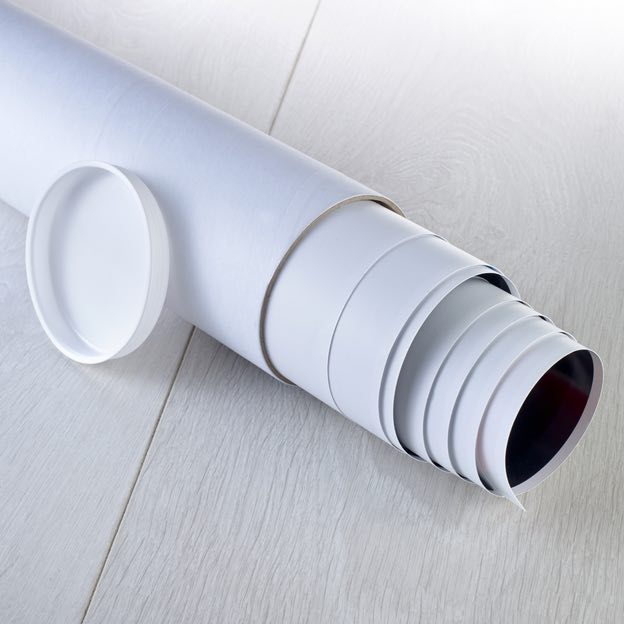Sizing information
| Overall size (inc frame) | x cm ( x in) |
| Depth | cm (in) |
| Artwork | x cm ( x in) |
| Border (mount) |
cm
top/bottom
(in)
cm left/right (in) |
| The paper size of our wall art shipped from the US is sized to the nearest inch. | |

Our framed prints
Every framed picture is created by hand in our workshop by specialist framers.
Black, white, silver, gold or natural frames available, supplied ready to hang.
All our frames have a smooth satin finish, and measure 20mm (front face) by 23mm (depth from wall).
Read more about our framed art prints.
Manufactured in the UK, the US and the EU
All products are created to order in our print factories around the globe, and we are the trusted printing partner of many high profile and respected art galleries and museums.
We are proud to have produced over 1 million prints for hundreds of thousands of customers.
Delivery & returns
We print everything to order so delivery times may vary but all framed pictures are despatched within 3 days.
Delivery to the UK, EU & US is free when you spend £75. Otherwise, delivery to the UK costs £10 for a single framed print.
We will happily replace your order if everything isn’t 100% perfect.
Product images of Blepsias ventricosus [Red Irish Lord fish]
![Blepsias ventricosus [Red Irish Lord fish] by Friedrich Guimpel](https://previews.magnoliabox.com/royalsociety/far_corner/rs-9928/GLOBAL-CFPM-12X16_black_622.jpg)
![Detail of Blepsias ventricosus [Red Irish Lord fish] by Friedrich Guimpel](http://www.magnoliabox.com/cdn/shop/products/rs-9928_1024x1024.jpg?v=1706869059)
Product details Blepsias ventricosus [Red Irish Lord fish]
Blepsias ventricosus [Red Irish Lord fish]
Marine zoological study of the Red Irish Lord fish (Hemilepidotus hemilepidotus) , native to the north Pacific ocean. Plate 13 from the book Zoologischer Atlas, enthaltend Abbildungen und Beschreibungen neuer Thierarten wahrend des Flottcapitains von Kotzebue zweiter Reise um die Welt..., by Friedrich Eschscholtz (Berlin, 1829). Inscribed '1/2 Blepsias ventricosus E. Bommer del. Prof. F. Guimpel sc.' Johann Friedrich Eschscholtz (1793-1831) Livonian physician, botanist and zoologist, was naturalist aboard two expeditions led by Otto von Kotzebue (1787-1846). The Rurik expedition 1815-1818 and the Predpriaetie 1823-1826 both circumnavigated the world and collected scientific specimens. These are from the second expedition.
Original: stipple engraving. 1829
- Image ref: RS-9928
- The Royal Society
Find related images
![Blepsias ventricosus [Red Irish Lord fish] by Friedrich Guimpel](http://www.magnoliabox.com/cdn/shop/products/rs-9928_1024x1024.jpg?v=1706869059) zoom
zoom

![Blepsias ventricosus [Red Irish Lord fish] by Friedrich Guimpel](https://previews.magnoliabox.com/royalsociety/standard/rs-9928/GLOBAL-FAP-8X12_scaled-bordered_100.jpg)
![Blepsias ventricosus [Red Irish Lord fish] by Friedrich Guimpel](https://previews.magnoliabox.com/royalsociety/standard/rs-9928/GLOBAL-CFPM-12X16_black_100.jpg)
![Blepsias ventricosus [Red Irish Lord fish] by Friedrich Guimpel](https://previews.magnoliabox.com/royalsociety/standard/rs-9928/GLOBAL-CAN-12X18_100.jpg)
![Blepsias ventricosus [Red Irish Lord fish] by Friedrich Guimpel](https://previews.magnoliabox.com/royalsociety/standard/rs-9928/GLOBAL-POST-MOH-6X4_scaled-bordered_100.jpg)
![Blepsias ventricosus [Red Irish Lord fish] by Friedrich Guimpel](https://previews.magnoliabox.com/royalsociety/standard/rs-9928/GLOBAL-GRE-MOH-6X4-BLA_scaled-bordered_100.jpg)
![Blepsias ventricosus [Red Irish Lord fish] by Friedrich Guimpel](https://previews.magnoliabox.com/royalsociety/mb_hero/rs-9928/GLOBAL-CFPM-18X24_black_850.jpg)

![Blepsias ventricosus [Red Irish Lord fish] by Friedrich Guimpel](https://previews.magnoliabox.com/royalsociety/far_corner/rs-9928/GLOBAL-FAP-8X12_scaled-bordered_405.jpg)

![Blepsias ventricosus [Red Irish Lord fish] by Friedrich Guimpel](https://previews.magnoliabox.com/royalsociety/far_corner/rs-9928/GLOBAL-CAN-12X18_622.jpg)
![Blepsias ventricosus [Red Irish Lord fish] by Friedrich Guimpel](https://previews.magnoliabox.com/royalsociety/standard/rs-9928/GLOBAL-FAP-8X12_scaled-bordered_150.jpg)
![Blepsias ventricosus [Red Irish Lord fish] by Friedrich Guimpel](https://previews.magnoliabox.com/royalsociety/standard/rs-9928/GLOBAL-CFPM-12X16_black_150.jpg)
![Blepsias ventricosus [Red Irish Lord fish] by Friedrich Guimpel](https://previews.magnoliabox.com/royalsociety/standard/rs-9928/GLOBAL-CAN-12X18_150.jpg)
![Blepsias ventricosus [Red Irish Lord fish] by Friedrich Guimpel](https://previews.magnoliabox.com/royalsociety/standard/rs-9928/GLOBAL-POST-MOH-6X4_scaled-bordered_150.jpg)
![Blepsias ventricosus [Red Irish Lord fish] by Friedrich Guimpel](https://previews.magnoliabox.com/royalsociety/standard/rs-9928/GLOBAL-GRE-MOH-6X4-BLA_scaled-bordered_150.jpg)



